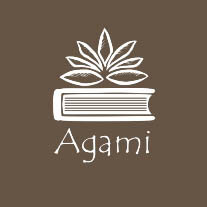Teaching for the Next 5 Years
Teachers’ professional development remains at the heart of quality education. The world leaders have pointed it out in the Sustainable Development Goals (SDGs). Target 4c of SDG states that the supply of trained teachers needs to be increased in lower or lower-middleincome countries. Bangladesh falls in that bracket, which needs trained teachers in the classrooms. Moreover, Continuous Professional Development (CPD) for teachers, such as on the job training, is a must in any education system. In recent years Bangladesh have made great strides in education, for example achieving gender parity in primary enrollment. However the quality of education yet is a big concern. Many students yet cannot read English sentences after passing grade 5. Many people blame the teachers for it.
Developing countries cannot provide adequate training to its teachers. That is because teachers’ training involves a significant amount of direct and indirect costs. Like, training providers need to offer travel allowances and accommodation facilities to the trainees.
Information and communication technology could help in reducing the costs of teachers’ training. One of the technology-enabled training programs is a Massive Open Online Course (MOOC). MOOCs are programs where professionals take online university-level courses from home without going there. In short, MOOCs are online distance education programs managed by educational institutions. MOOCs have been gaining popularity in North American countries in professional development. Coursera, Udemy, Udacity are the names of some of the big MOOC providers.
Many scholars argue that MOOCs are unsuitable for the southern part of the globe. But adaptation and customization could be a way out of utilizing MOOCs in developing countries. Some initiatives have already been taken using MOOCs in professional development in some countries. The World Bank has recently taken steps to put in place MOOCs in professional development in African countries, especially to instill ICT skills.
Realizing the opportunity of MOOCs, some educational agencies have been working on it to provide on the job training of teachers in some developing countries. We have some great examples of MOOC programs being used in teachers training in developing countries. TESSA MOOC (Teacher Education for Sub Saharan Africa MOOC) and TESS India (Teacher Education through School-based Support India) are two such MOOC programs. The two programs are developed and managed by many agencies and countries under the leadership of the experts of Open University UK. In Bangladesh, e-learning platforms have been gaining momentum, but we are yet to find a real MOOC program.
Teachers’ training is an expensive venture which incurs various indirect costs where most of the developing countries do not want to spend money. Rather they go for implementing popular decisions like providing free textbooks or raising teachers’ salary. To realize the targets of SDG, we need innovative and collaborative approaches. MOOCs could be a good way out in teachers’ training for lower and lower-middle-income countries like Bangladesh to achieve the SDG target of increasing trained teachers in classrooms. I hope, after a few years, technologybased distance education programs like MOOCs will be a reality in our country.
Shihab Uddin Ahmad
Upazila Nirbahi Officer, Sarishabari, Jamalpur




